Breeding is progressing nicely on Tullamore Farm, with 65 cows bred in the first three weeks of the season.
Thirty-three heifers were bred to AI in the first two weeks of breeding. The remaining 15 heifers were given prostaglandin injections early in the week and nine of these have since been served with AI. These 15 will now join the main batch of heifers that are running with the Salers stock bull to mop up.
Farm manager Shaun Diver said that he has noted four repeats in the batch of 33 heifers since the bull was joined.
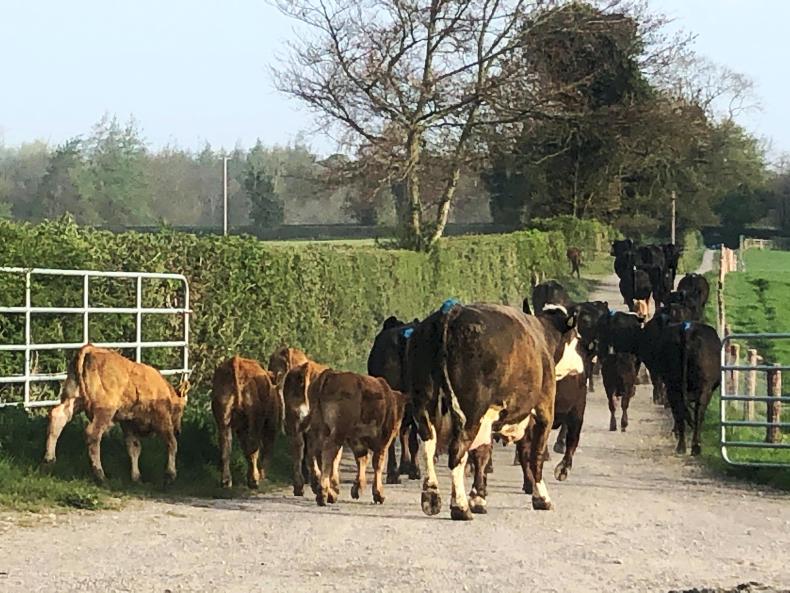
Breeding is progressing well, with 65 cows mated in the first three weeks.
Grass
Grass supply is good on the farm at the moment, however things are getting very dry. Shaun said paddocks that were taken out last week are very slow to get going again.
In saying this, 10 acres of grazing ground got a bag of protected urea this week with the hopes of bringing it in with the first-cut silage in early June.
Shaun said: “These paddocks have a cover of about 1,700kg DM/ha so if we do go very dry over the next couple of weeks the option will be there to graze them if necessary. The paddocks we took out last week had covers of 2,300kg DM/ha so holding them up for grazing wasn’t an option.”
Sheep
There was a lot of sheep work to get through this week, with all 240 lambs in for their first clostridial vaccination. As well as this, they received a white drench to cover for nematodirus as we enter the high-risk period.

Lambs in for their first dose and clostridial vaccination. \ CJ Nash
Lambs also received a pour-on to cover for blowfly strike, a cobalt bolus, and went through a zinc-sulphate footbath.
With ground conditions so dry, there were a couple of lambs with signs of scald. Footbathing early before this becomes a bigger problem is important. Scald that is not treated leaves the foot more prone to other lameness issues such as footrot.
Breeding is progressing nicely on Tullamore Farm, with 65 cows bred in the first three weeks of the season.
Thirty-three heifers were bred to AI in the first two weeks of breeding. The remaining 15 heifers were given prostaglandin injections early in the week and nine of these have since been served with AI. These 15 will now join the main batch of heifers that are running with the Salers stock bull to mop up.
Farm manager Shaun Diver said that he has noted four repeats in the batch of 33 heifers since the bull was joined.

Breeding is progressing well, with 65 cows mated in the first three weeks.
Grass
Grass supply is good on the farm at the moment, however things are getting very dry. Shaun said paddocks that were taken out last week are very slow to get going again.
In saying this, 10 acres of grazing ground got a bag of protected urea this week with the hopes of bringing it in with the first-cut silage in early June.
Shaun said: “These paddocks have a cover of about 1,700kg DM/ha so if we do go very dry over the next couple of weeks the option will be there to graze them if necessary. The paddocks we took out last week had covers of 2,300kg DM/ha so holding them up for grazing wasn’t an option.”
Sheep
There was a lot of sheep work to get through this week, with all 240 lambs in for their first clostridial vaccination. As well as this, they received a white drench to cover for nematodirus as we enter the high-risk period.

Lambs in for their first dose and clostridial vaccination. \ CJ Nash
Lambs also received a pour-on to cover for blowfly strike, a cobalt bolus, and went through a zinc-sulphate footbath.
With ground conditions so dry, there were a couple of lambs with signs of scald. Footbathing early before this becomes a bigger problem is important. Scald that is not treated leaves the foot more prone to other lameness issues such as footrot.





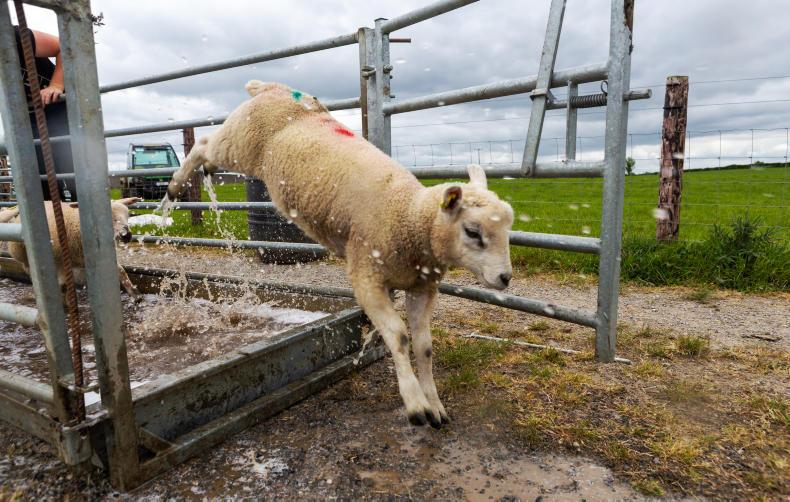
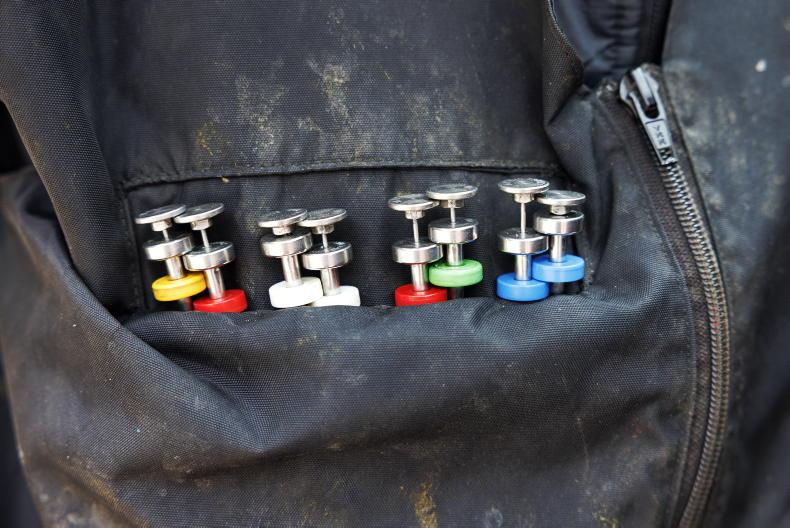

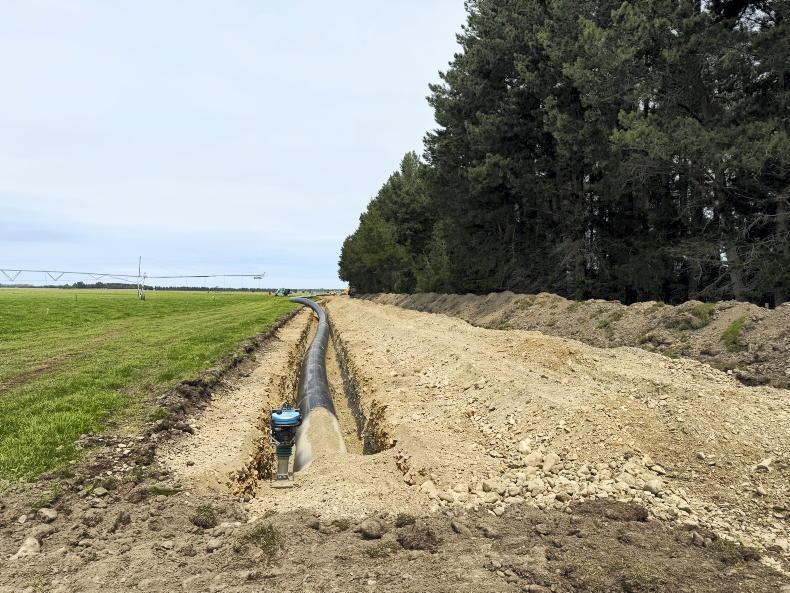
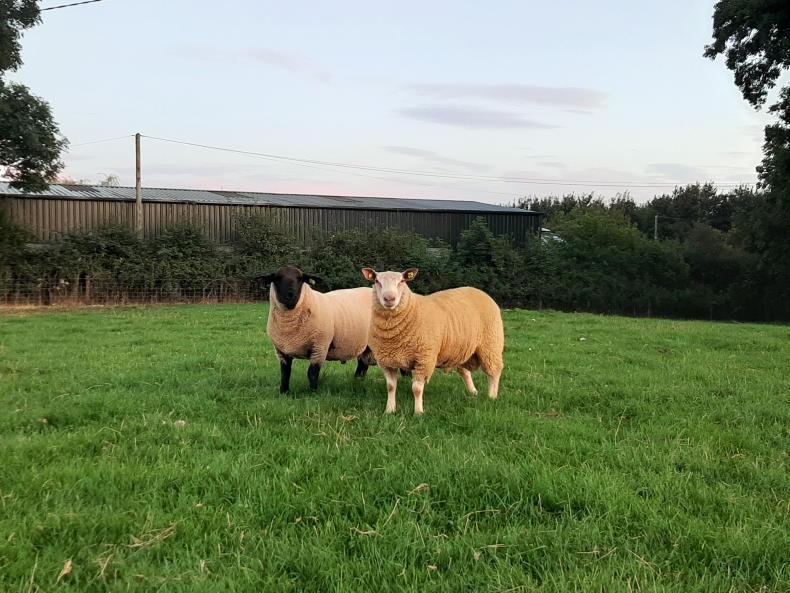
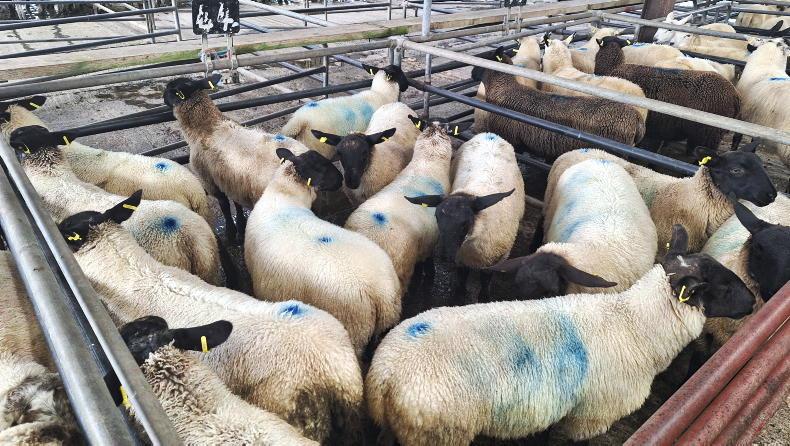
SHARING OPTIONS